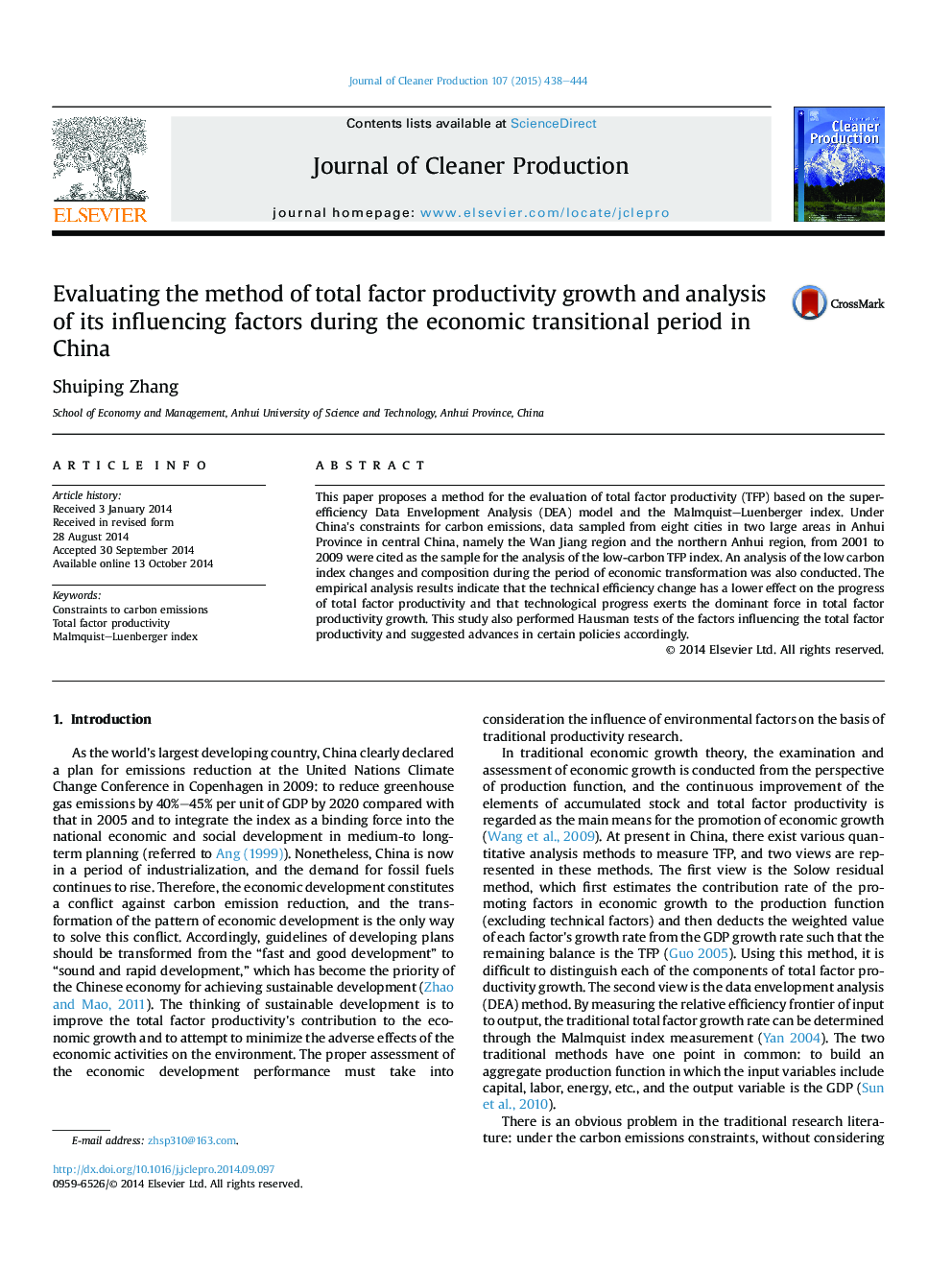| Article ID | Journal | Published Year | Pages | File Type |
|---|---|---|---|---|
| 1744434 | Journal of Cleaner Production | 2015 | 7 Pages |
This paper proposes a method for the evaluation of total factor productivity (TFP) based on the super-efficiency Data Envelopment Analysis (DEA) model and the Malmquist–Luenberger index. Under China's constraints for carbon emissions, data sampled from eight cities in two large areas in Anhui Province in central China, namely the Wan Jiang region and the northern Anhui region, from 2001 to 2009 were cited as the sample for the analysis of the low-carbon TFP index. An analysis of the low carbon index changes and composition during the period of economic transformation was also conducted. The empirical analysis results indicate that the technical efficiency change has a lower effect on the progress of total factor productivity and that technological progress exerts the dominant force in total factor productivity growth. This study also performed Hausman tests of the factors influencing the total factor productivity and suggested advances in certain policies accordingly.
